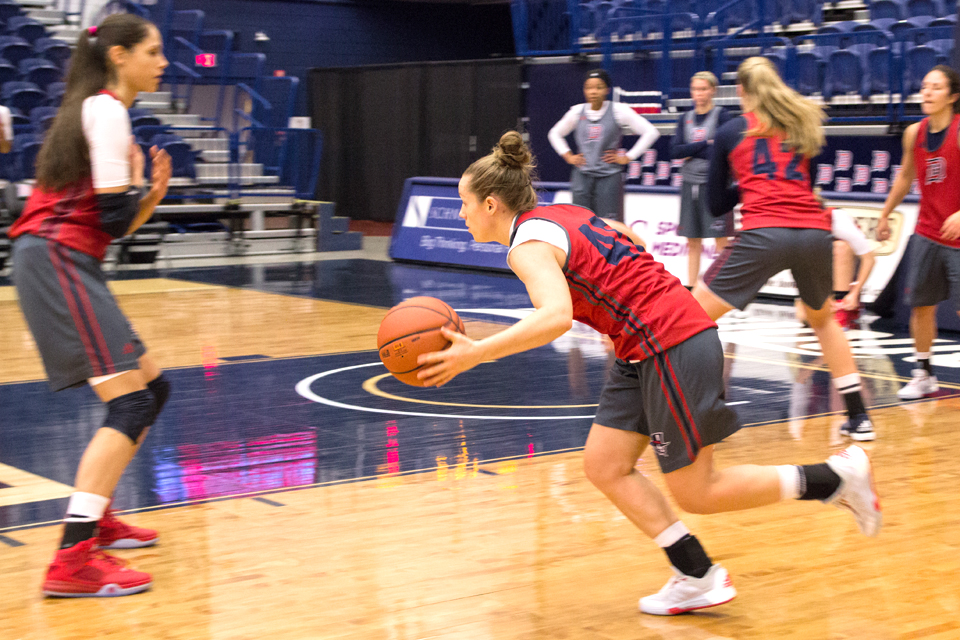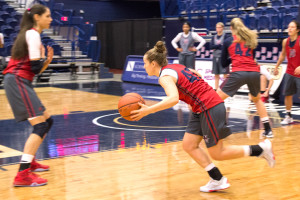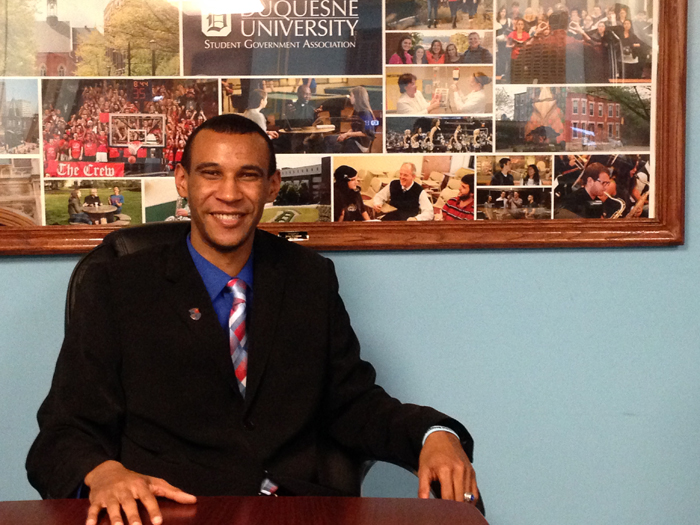

By Kaye Burnet | News Editor
For Amadea Szamosi, it’s the food.
The taste, the texture, the ingredients — it’s all so different from what she is used to in her hometown of Pécs, Hungary.
“I’m trying to make the most of it and learning to cook and going to the grocery store, and I feel like it’s a lot of fun,” Szamosi said with a laugh.
Szamosi, a junior, is one of seven international players who comprise half of the Duquesne women’s basketball team. For Szamosi and the others, it’s the little things like food, slang and clothing that remind them everyday that they are far from home. But through teamwork, friendship and a shared love of playing hoops, these women managed to find a home in the United States and at Duquesne.
There is a wide variety amongst the international players. Freshman Juca Vojinovic is from Serbia, senior Emilie Gronas is from Norway and junior Brianna Thomas is from Canada. Tallinn, Estonia is home to freshman Kadri-Ann Lass, while Eniko Kuttor lives two hours north of Szamosi in Budapest, Hungary.
Despite the diversity, the team functions like a family, Szamosi said.
“When I got here, I wasn’t by myself,” she said. “I kind of had a family type of thing right away. I had my teammates and my coaches to take care of me, and that helped me a lot.”
Junior Judith Sole is Spanish, from Igualada near Barcelona. She’s an integrated marketing major and said when she first came to America, she had a hard time following along during classes.
“At the beginning it was tough,” Sole said. “I had to put everything into the translator.”
These women leave behind parents, grandparents and siblings when they come to the U.S.
For Szamosi, it is difficult to be an ocean away from her three siblings back in Hungary.
“I miss my siblings, because they are very young.”
Her sisters Laura, 12, and Viktoria, 11, both play basketball, a tradition for Szamosi women. Amadea’s mother played basketball on the Hungarian women’s national team for six years, and played for one year on a scholarship to a college in the United States.
“She always told me that if I want to play basketball at a high level and want to get a great education, then the U.S. is the place to go to.”
In a team that is half-foreign, cultural differences have lead to some funny moments. Szamosi said the Americans on the team have been very patient in overlooking differences such as when it is appropriate to blow one’s nose or how much clothing should be worn in locker rooms.
“I really appreciate how all the players that are local understanding that we are different and how they are willing to accept that we have different traditions and we look at things from a different aspect sometimes,” Szamosi said.




